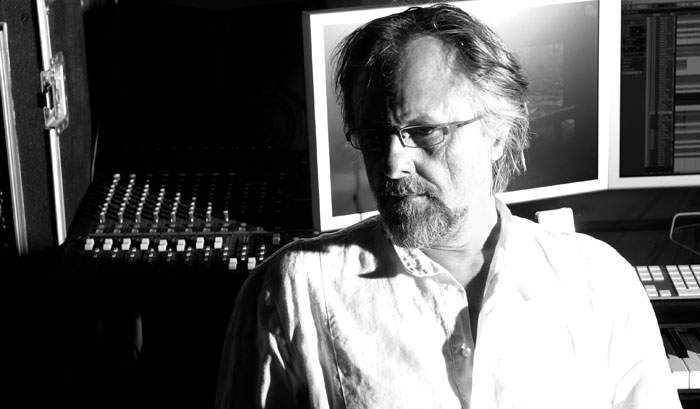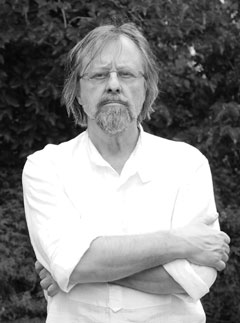


As a young musician in his native Poland, Oscar-winning film composer Jan Kaczmarek acquired a rare and remarkable tool: an Atari computer running Steinberg music software.
"At that time, it was almost impossible to get such things in Poland," he notes. "We were behind the Iron Curtain, so a friend in Holland got it for me. It was like a gift from God. Having a computer and software stimulated an incredible amount of creativity."
Kaczmarek always knew his life would revolve around music--though not necessarily in the manner initially planned. "My mother dreamed about me becoming another Caruso," he laughs. "Unfortunately I never turned out to be a singer, but I began composing in high school. We had a small theater, and I was the only one in the school who could write music, so I immediately became the composer."

Several years later, he'd installed himself in larger avant-garde theatrical circles. "Poland was a superpower in terms of theater," he explains. "We produced giants like Jerzy Grotowski, who still has a strong following in university circles. There was a movement we called 'Theater of Vision,' which was almost like opera, but without the singing. And many first-class composers were writing for dramatic theater."
In 1977 Kaczmarek founded a musical group called the Orchestra of the Eighth Day, in which he played a rare type of zither called the Fishers Fidola. "I could play it with two bows, and also pluck it," he says. "So I immediately had a distinctive musical voice, because no one else played this thing--I was the only virtuoso in the world!" The group toured Europe and the United States through the 1980s, performing at such high-profile events as the Venice Biennale and winning several international awards.
Jan also continued to compose for Polish theater, and relocated to America in 1989 to expand his career. "But I discovered it's very different here," he recalls. "American theater is based on heavy dialog, and it doesn't have the financial backing we have in Europe, which allows us to create elaborate, large-scale performances." Composing for film offered greater creative opportunities, he quickly realized. "Occasionally I did music for film in Poland, but I always considered it a secondary thing. Only when I came here did I discover how much work and talent is needed to create a good picture. And I became addicted to it."
Kaczmarek has since scored dozens of films and television productions, including 1999's Aimee & Jaguar, 2002's Unfaithful, and a monumental international miniseries of War and Peace in 2007. One of his most notable accomplishments is the Academy Award-winning score for 2004's Finding Neverland, based on the story of Peter Pan author J.M. Barrie.
I like that Steinberg paid attention to film people. Importing picure and sound is very simple and easy.
"For the first time in my adult career, I wrote something very simple," Kaczmarek observes. "That's because there was a world of children involved. Also, the light of Los Angeles influenced my writing. There's simply so much sun here! In Europe, if you don't write dark, dramatic pieces, you are not a composer. Simplicity is rejected, in part because our history is so painful and bloody and dark. Los Angeles is completely the opposite. I became a different person here. That was certainly why I could write Finding Neverland, which would have been impossible when I arrived in '89."
He was also aided by Steinberg's Cubase 4 music production software. "I've used Steinberg software for 25 years," says Jan. "I'm one of their oldest and most faithful users! Cubase 4 is very intuitive. I like that Steinberg paid attention to film people--for example, importing picture and sound is very simple and easy. The way it handles MIDI is fantastic, and the notation features help me communicate with my orchestrators. And since VST is such a universal format, it allows me to use all the most sophisticated virtual instruments and plug-ins."
In addition to his many current and upcoming scoring projects--which include a new production of The Brothers Karamazov and an epic Canadian film titled Passchendaele, Jan has ambitious plans to create an institute in Poland similar to the Sundance Institute in the U.S., where students can learn about all aspects of film. "We are renovating some 19th-century buildings, and hope to open the first one next year," he says. "We'll be working with young, talented people, helping to develop new ideas in different aspects of film and music."
Kaczmarek is grateful for the opportunity to pass along his experience and inspiration to a younger generation. "Sometimes I think of where I was 20 years ago, and it surprises me," he reflects. "I remember how undeveloped my craft was. That's the beauty of working so much--suddenly you become good at what you do. Your craft grows, even if you don't notice it. I'm pretty amazed I'm in such a different place!"
(Photography Credit: Rob Shanahan)
























